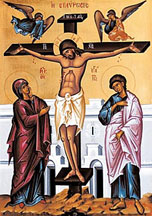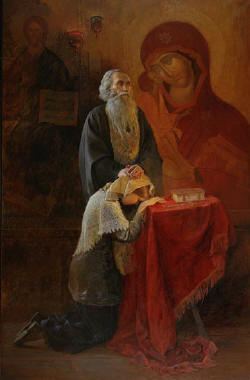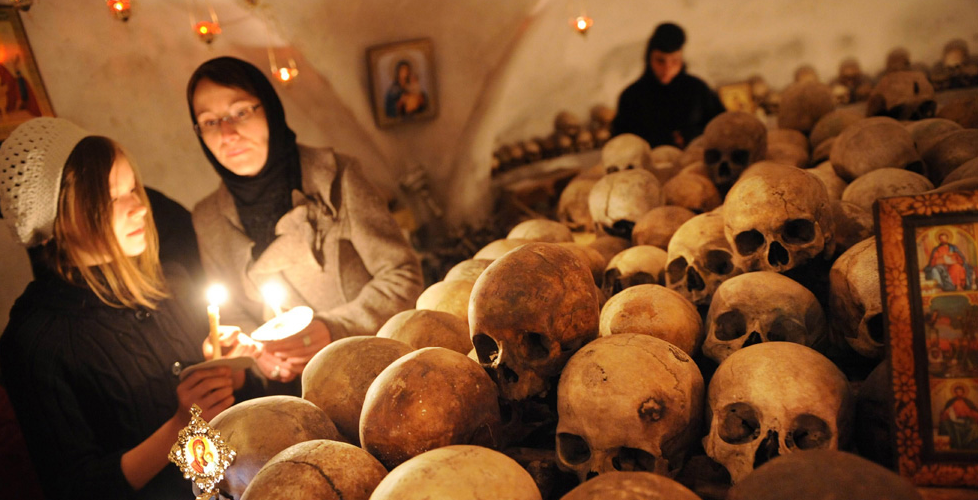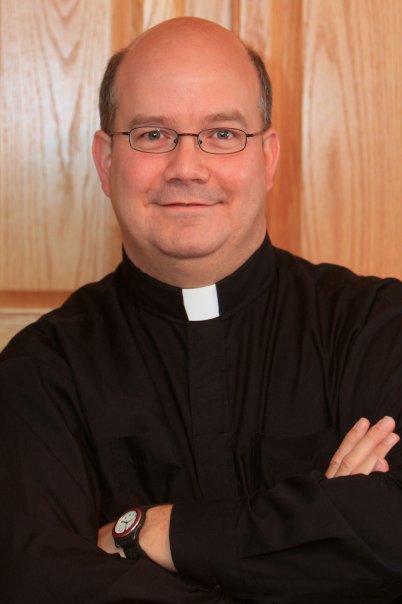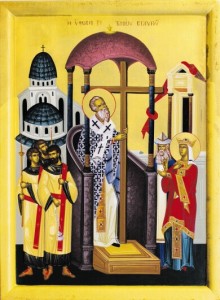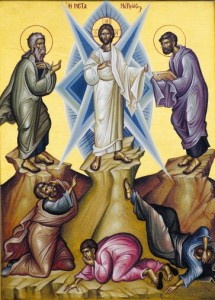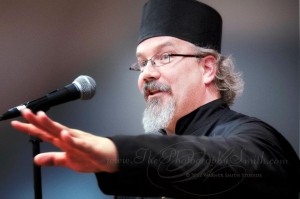
The Reading is from Mark 8:34-38; 9:1
The Lord said: “If anyone wishes to come after me, let him deny himself and take up his cross and follow me. For whoever would save his life will lose it; and whoever loses his life for my sake and the gospel’s will save it. For what does it profit a man, to gain the whole world and forfeit his life? For what can a man give in return for his life? For whoever is ashamed of me and my words in this adulterous and sinful generation, of him will the Son of man also be ashamed, when he comes in the glory of his Father with the holy angels.” And he said to them, “Truly, I say to you, there are some standing here who will not taste death before they see the kingdom of God come with power.”
I find it amazing that Scripture can challenge us in just a few brief words. Today, in the Gospel pericope that I just read, Jesus challenges those who were listening to Him. He challenges them in a way that he has never done before. He is telling them that if they are going to be true followers of His they must lose their life. They must give it all up, if they are in fact, going to be authentic followers of His. He is telling them that being one of His disciples is a full time job.
I often think about the Apostles and how Jesus called them. You remember. He simply told them to follow Him or someone, like St. Andrew told others. They dropped what they were doing and followed Him. We never hear in Scripture that St. Peter had to take a day off from His Apostles duty so he could go mend his nets, or go fishing. I get the impression that, for the most part, they followed Jesus wherever He went.
Jesus tells us today that if we are going to follow Him we must take up the Cross. The cross is a difficult thing to understand. The cross that Jesus was crucified on was a very large chunk of wood. We have all seen depictions of this in movies and paintings and Icons. In fact if we look at the Icon for the Feast of the Elevation of the Cross we can see how large it was. In order for Jesus to carry that cross he had to use both hands, his shoulder, and all of His strength to do so and at one point, He needed help to carry it because he was physically exhausted.
Jesus carried a physical cross made of wood and instrument of pain, torture, fear, and ultimately death. But that cross also brought forgiveness, reconciliation, transformation, love, and life. The hymns of Vespers on the feast of the Elevation of the Cross speak of how the wood of the cross healed the sin that was caused by the wood of the tree. The cross of Jesus healed the sin of Adam in the garden and opened paradise once again to all of creation. What had been closed by the sin of one man had been opened by the love of another.
But what is this cross that Jesus is telling us we must take up? Do we have to go out and find a tree, cut it down, make a cross and carry it around? No, Jesus is speaking here of our spiritual life, and what we must do to find that paradise that He has opened for us.
The cross is different for each one of us. Maybe the cross is a physical ailment, perhaps it is that we are getting older, and stuff does not work the same way any longer. Maybe we have an illness of some kind. Perhaps that cross is the person sitting right next to you! Maybe you married your cross! Whatever that cross is, and I think it changes as we develop our spiritual life, we have to carry it as best we can. Maybe like Jesus we need help from time to time to carry that cross. Maybe we need to put it down, or ask another to share the burden with us so we can recover our strength to carry it again. Whatever we need to do we do not have a choice if we are going to be followers of Christ.
Part of carrying that cross is also bearing the suffering that will go along with it. This suffering is not a punishment for anything, but rather it is a way to overcome this fallen world that we live in. Jesus tells us in the same passage today that we must deny ourselves in order to take up this cross. He tells one young man to sell all he has and follow him, he tells another who wants to go and bury his father who has just died, to let the dead bury the dead and follow him. He called each of the Apostles away from their families, and their work to follow him. He does this because he knows we cannot carry the cross if our hands are full.
Again Jesus asks, what benefit there is if we gain the whole world but lose our soul? Some of us work to live, and we live to work. For some of us, our identity comes from what we do, not who we are. In this day and age when everyone is struggling to make ends meet it is easy to worry about the earthly things of this life, but when we are doing that, when we are building bigger barns to store up stuff, we lose sight of what matters and that is our soul.
The spiritual life is a challenge. It is a challenge in this world that we live in today to be someone who is a person of faith. Faith is something that is mocked in the world and scorned. If you are a person of traditional theological beliefs and thinks that sin still exists and that we are all sinners and need the Grace of God, you are looked upon as old fashioned and out of touch.
Some places of worship are more life entertainment venues than hospitals for the sick and wounded. The church should be a place where you come and are challenged to be better people, but we have become so afraid of offending anyone that we water down the words of Christ so they mean almost nothing. We have adopted the I’m okay you’re okay way of thinking, and I am sorry to say that is not what Christians are about.
I was recently asked a question about baking Holy Bread. The question was asked should I still bring the bread to church if it is not perfect. My answer was yes, absolutely bring that bread to Church to be used as the offering. And I explained why I feel this way. You see, none of us are perfect. We might like to think we are, but we are not. We all have slight flaws, sins if you will that make us imperfect and that is okay. It’s okay because, through the power and Grace of God, we can be made perfect. It’s through the life long journey of our spiritual life that perfection is made possible, but it cannot be done without the Holy Spirit. So we bring the bread, with all of its flaws and imperfections. Maybe the seal did not come out right, maybe it puffed up too much, maybe it split or is not as dark as we would like it. But regardless of how it looks or tastes during the Liturgy, the Holy Spirit comes upon it and makes that bread perfect. That bread is transformed into something that we could never make it. The Holy Spirit takes that imperfect work of imperfect human beings and perfects it, and it becomes the bread of Heaven, it become the unblemished lamb that takes away the sin of the world! That bread is each one of us, and we can be made perfect through that life giving power of the Holy Spirit.
Our imperfections are the cross that we have to carry. Our weaknesses, our hopes, our fears all of that is taken on our shoulders just as Jesus did when He carried His cross for all of us. We bring it here, we put it on the holy altar, and the Holy Spirit makes it perfect. By the Grace and love of the Holy Trinity we find the strength that we need to carry all of it, and by carrying it all we become perfect.
In a few moments, I will carry the bread and the wine out before you. I will chant prayers for many different people both living and dead. When I prepare the bread and the wine before liturgy, there are prayers for the sick and the dying as well as for all of you by name. In a spiritual way, when I turn and carry the chalice and the diskos and put them on the altar all of you are there, I am placing all of you and all of your needs on that altar as well as the bread and wine. We ask and pray that the Holy Spirit come upon these gifts and to make them holy. We pray at the end of liturgy in thanksgiving that we have been made worthy, once again, to have the privilege of being present here and to partake of these gifts either physically or spiritually. It is through that very same Spirit, the Spirit that sanctifies these gifts that sanctifies each one of us and makes us holy.
If anyone is to come after me, let him deny himself, and take up his cross, and follow me!

